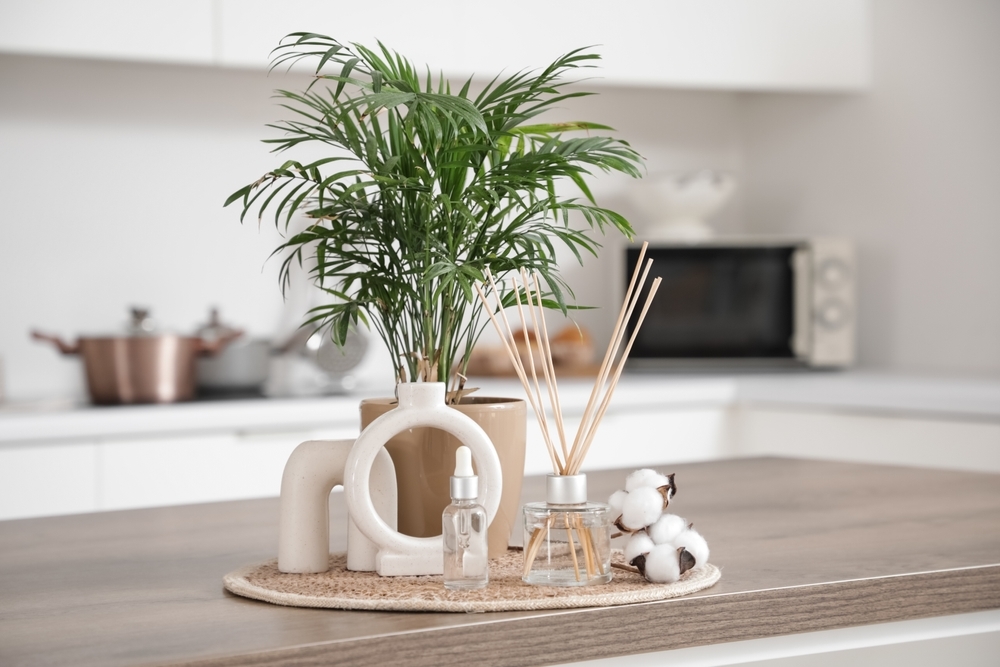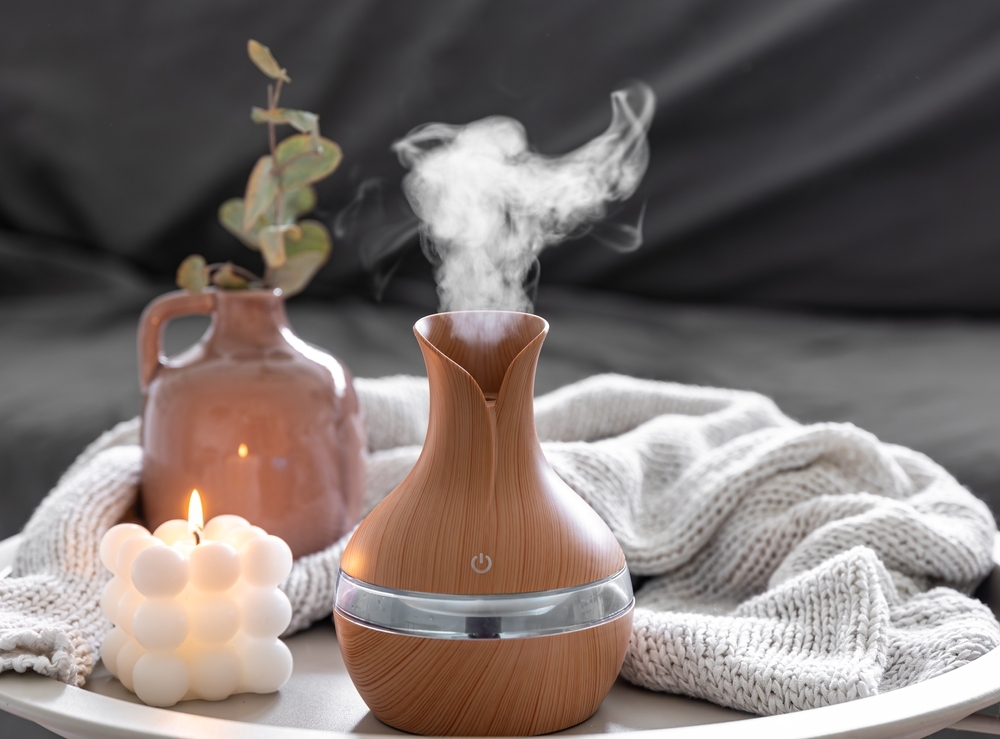1. What Are Natural Scented Oils?
Scented oils—especially those made from 100% pure essential oils—are powerful, natural tools for elevating your home environment. Extracted from flowers, herbs, and fruits, these oils carry the pure essence of their botanical origins.
Unlike synthetic air fresheners, natural scented oils don’t just mask odors—they provide therapeutic benefits through aromatherapy. Whether you’re aiming to calm a chaotic space or invigorate your morning routine, there’s a natural oil to match every mood.
💡 Fun Fact: Lavender and peppermint oils are among the most researched for their calming and energizing effects, respectively.
2. Where to Use Them in the Home
From bedrooms to entryways, natural scented oils are incredibly versatile. Here are some placement ideas:
- Living Room: Use citrus or eucalyptus for a clean, inviting vibe
- Bathroom: Tea tree or lemongrass for freshness and antibacterial properties
- Bedroom: Lavender or sandalwood to support deep rest
- Kitchen: Sweet orange or rosemary to neutralize cooking odors
Use with a diffuser, oil burner, or even sprinkle a few drops on potpourri or fabric-safe surfaces.
3. Aromatherapy Benefits Explained
Aromatherapy taps into your brain’s limbic system—the part that processes emotions and memory. Inhaling essential oils can:
- Reduce stress and anxiety
- Enhance focus and clarity
- Support sleep and relaxation
- Boost energy levels naturally
- Improve air quality with antimicrobial effects
This is why so many homecare enthusiasts are turning to scented oils as part of a wellness-focused lifestyle.
4. DIY Scent Blends to Try
Want to personalize your home fragrance? Try these custom blends:
- Calming Sleep Blend: 3 drops lavender + 2 drops cedarwood + 1 drop bergamot
- Morning Energizer: 2 drops peppermint + 3 drops lemon
- Seasonal Cozy: 3 drops cinnamon + 2 drops sweet orange + 1 drop clove
Use these blends in diffusers or make your own room sprays by diluting with water and a splash of witch hazel.
✅ Tip: Always test blends in small batches before scaling up.

5. Storage and Safety Tips
To preserve potency and safety:
- Store oils in dark glass bottles, away from sunlight
- Keep out of reach of children and pets
- Never apply undiluted oils directly to skin
- Use carrier oils (e.g., coconut, almond) for topical blends
- Follow product-specific dilution guidelines
Natural doesn’t always mean harmless—essential oils are highly concentrated and should be used mindfully.
6. Comparing Diffusers and Oil Burners
| Feature | Diffusers | Oil Burners |
|---|---|---|
| Heat Required | No (uses ultrasonic/vapor) | Yes (uses candle or heat source) |
| Best For | Long-term fragrance dispersion | Stronger aroma in short time |
| Pros | Quiet, humidifies air | Simple, affordable |
| Cons | Needs electricity, pricier | Risk of overheating, scent fades fast |
Verdict: Use diffusers for consistent daily use and burners for occasional ambiance.
7. Best Scents by Season or Room
- Spring: Geranium, lemon, mint (fresh start)
- Summer: Grapefruit, coconut, eucalyptus (cooling)
- Autumn: Cinnamon, patchouli, orange (cozy vibes)
- Winter: Pine, frankincense, vanilla (warmth & calm)
By room:
- Kitchen: Herbal (basil, thyme)
- Living Room: Woody + citrus (cedar + lemon)
- Bedroom: Floral (ylang-ylang, rose)
🎁 Bonus: How to Create a Signature Home Scent
Creating your signature scent makes your home instantly recognizable and comforting. Combine base, middle, and top note oils like a perfumer:
- Base (long-lasting): Patchouli, cedarwood
- Middle (body): Lavender, geranium
- Top (first hit): Lemon, peppermint
Mix in a 2:3:5 ratio and test it with a small diffuser or linen spray. You’ll craft a personal scent story that welcomes everyone at the door.
🧠 The Psychological Impact of Home Fragrance
Scents don’t just freshen a room—they influence how you feel in it. Studies show that specific aromas can trigger memory recall, elevate mood, and even enhance productivity. For example, rosemary has been linked to improved concentration, while vanilla evokes warmth and comfort. Scented oils, when used intentionally, can create mental “zones” within your home—such as a lavender-scented bedroom for rest or a citrus-filled workspace for motivation. This makes aromatherapy not only a sensory treat, but a tool for emotional design.
🕯️ Your home’s scent isn’t background—it’s atmosphere with purpose.
🔗 Internal Links
- Bell’s Wellness Picks for Stress Relief
- 3D Shampoo Revolution: The Smartest Innovation in Haircare 2025




